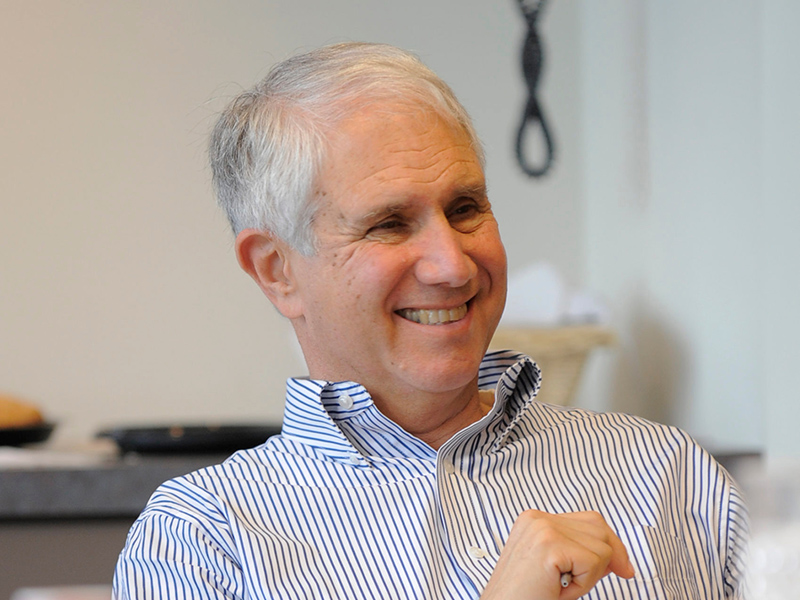Joel Lamstein, founder of John Snow Inc., to serve as visiting professor

Joel Lamstein, founder of the public health consulting firm John Snow Inc., will join the Tulane School of Public Health and Tropical Medicine as a visiting professor in the Department of International Health and Sustainable Development this semester.
Like many students, Lamstein’s path to public health was not a direct line. He majored in math and physics at the University of Michigan and worked at IBM, before taking a position at the Massachusetts Institute of Technology (MIT). At MIT’s Sloan School of Management, worked with professors interested in applying private sector management skills to public sector issues, particularly public health, which led to the founding of Management Sciences for Health (MSH).
In 1978, Lamstein left MSH to form JSI with Dr. Bert Hirschhorn. In more than 40 years the organization has worked in 107 countries, has eight offices in the United States, has a staff of 4,000, and works in a wide range of topics including behavioral health, health communication, supply chain management, immunization, etc.
“I have always been interested in social justice issues and the disparities between rich and poor people, in the United States and abroad,” he says.
Details for Lamstein’s visiting professorship are still taking shape. He hopes to give some lectures and also work with students as they plan their careers in public health. “Often students are well trained academically but have less knowledge about how public health works in practice. Over the years I’ve spent time with many students advising them about their career aspirations and hope I can do the same at Tulane.”
Lamstein finds today’s students much more knowledgeable than when he first entered the field. In addition to being more well-traveled and exposed to more information thanks to the internet, “they’re a lot more socially conscious than we were at that age, which is an very encouraging development,” he says.
The employment landscape for global health graduates has changed, he noted. About three fourths of JSI’s staff are working in developing countries and the majority of that staff are now from the country or region they are from, limiting the opportunities for US students.
For students who do want a full-time placement overseas, Lamstein suggests that they will likely need higher value, analytical and management skills. “And I think many of the global health students will be working on U.S. health issues,” he says, where many of the common challenges, particularly health disparities and social determinants of health, are similar to those in developing countries.
He looks forward to getting to know New Orleans and the South. “The only time I’ve been in New Orleans has been to be at Tulane,” he said, having served as a graduation speaker in 2007 and returning in 2012 to present a lecture at the school’s Centennial Celebration.
I’ve always been less interested in buildings and more interested in people, how the people think about themselves, and what their culture is like.”
“I look forward to my time at Tulane and to making new colleagues and friends,” he adds.
